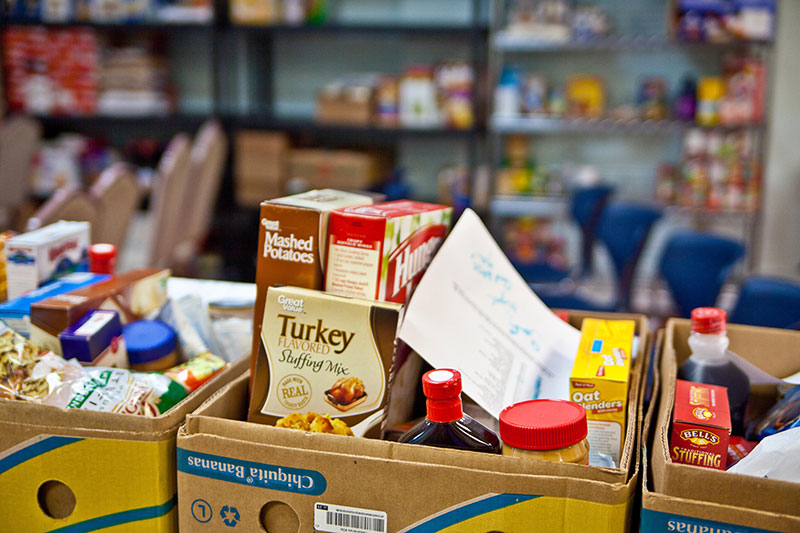Food Pantry Lockhart: A Lifeline for Those Facing Food Insecurity
Food Pantry Lockhart: A Lifeline for Those Facing Food Insecurity
Blog Article
Why Sustaining Your Regional Food Cupboard Is Essential for Helping Those in Need
The importance of supporting regional food cupboards can not be overstated, specifically in the context of food instability, which impacts a worrying number of people and households within our communities. As we check out the multifaceted function of food pantries, it comes to be obvious that their influence expands much past simply dispersing food.
Comprehending Food Insecurity
Food instability impacts about 10.5% of families in the United States, highlighting a considerable public health issue that transcends simple cravings. It describes the lack of constant access to enough food for an energetic, healthy and balanced life. This problem can cause a variety of damaging outcomes, including inadequate health, increased medical care costs, and diminished academic performance amongst children.
The reasons for food insecurity are multifaceted, commonly coming from financial factors such as destitution, underemployment, and joblessness. Geographical area can also play an essential role, with food deserts-- locations with restricted access to healthy and budget-friendly food-- aggravating the issue - Food Pantry Lockhart. In addition, systemic aspects, consisting of social and racial inequities, add to the disproportionate effect of food insecurity on marginalized areas
Addressing food instability is not merely regarding increasing food supply; it requires a comprehensive approach that incorporates economic security, education, and community assistance. Food insecurity not just influences private well-being but also has broader implications for societal health and efficiency. Understanding its intricacy is essential for creating efficient treatments and fostering long-lasting options that make certain all individuals have reputable access to nutritious food.
The Duty of Food Pantries
Regional food cupboards serve as essential lifelines for family members and people encountering food insecurity. They offer essential food products to those who might struggle to afford ample nourishment due to financial challenge, joblessness, or unexpected situations. By dispersing food at no cost, these companies help reduce cravings and avoid the negative wellness impacts related to inadequate diet plans.
Food cupboards typically companion with regional ranches, grocery shops, and neighborhood organizations to source a range of healthy food things, consisting of fresh fruit and vegetables, dairy, and healthy proteins. This collaboration guarantees that cupboard customers get not only sustenance yet additionally much healthier alternatives that add to overall well-being.
Furthermore, food kitchens serve as neighborhood hubs, fostering connections among homeowners and providing a sense of dignity to those in demand. Numerous cupboards offer extra sources, such as nourishment education and recommendations to social solutions, aiding customers navigate their difficulties extra efficiently.
In significance, food cupboards play a multifaceted function in combating food insecurity. They not only address prompt cravings yet also equip people and family members to enhance their scenarios, thereby promoting community durability and cohesion.

Advantages of Supporting Food Pantries

Supporting food kitchens not just nourishes those in requirement yet also enhances the fabric of the neighborhood. By giving important food sources, food cupboards minimize cravings and reduce food insecurity, which is important for the health and wellness of families and individuals. Access to healthy food adds to improved physical health, much better educational results for kids, and boosted psychological health, thus promoting an extra effective discover this info here and involved area.
Moreover, supporting food kitchens promotes social cohesion. These organizations function as hubs for neighborhood interaction, combining volunteers, benefactors, and receivers in a common goal to battle hunger. This collaboration can break down obstacles, foster understanding, and develop partnerships amongst varied area members.
Furthermore, contributions to food kitchens, whether in the type of food, funds, or time, boost the regional economic climate. Lots of food kitchens prioritize sourcing from regional producers, thus supporting local farming and organizations. This develops a cycle of assistance that profits not only those in need but the area in its entirety.
Just How to Get Involved
Engagement with food pantries can take several types, enabling teams and individuals to make a meaningful impact in their communities. Among the most straight ways to get entailed is by contributing food products. Non-perishable items such as canned items, pasta, and rice are always sought after. Monetary contributions are additionally invaluable, as they make it possible for food kitchens to purchase fresh fruit and vegetables and necessary supplies.
Offering your time is another impactful way to support regional food cupboards (Food Pantry Lockhart). In enhancement, think about organizing food drives within your workplace, neighborhood, or institution group to raise awareness and gather resources.
Partnerships with local companies can even more improve support for food pantries. this Companies can host donation occasions or add a section of their sales to the cupboard. Last but not least, spreading out the word via social media and personal networks aids to raise presence and urge others to add. By taking these individuals, actions and groups can significantly reinforce the efforts of local food pantries and assist those in need.
Neighborhood Influence and Connection
Acknowledging the extensive influence of food kitchens on area well-being is necessary for fostering a spirit of connection and cooperation. Food pantries offer not just as crucial sources for those facing food insecurity yet additionally as hubs for neighborhood interaction. They unite diverse groups-- volunteers, contributors, and customers-- producing a setting where individuals can connect and support each other.
The impact of food pantries prolongs beyond simple stipulation of food; they offer as a catalyst for social cohesion. By joining pantry efforts, neighborhood members can establish connections that transcend socioeconomic barriers. This network of support helps to dismantle the stigma commonly linked with food aid, cultivating an ambience of approval and understanding.
As people unite in their initiatives to support neighborhood food cupboards, they cultivate a feeling of shared purpose and duty, strengthening the concept that everybody has a role to play in ensuring that no one goes hungry. Inevitably, supporting food pantries enhances the fabric of the area as a whole.
Conclusion
Sustaining local food cupboards is necessary in combating food insecurity and enhancing the health of prone populaces. By making sure accessibility to nutritious food, these organizations add to enhanced wellness results, instructional performance, and psychological health. Interaction with food cupboards promotes area connections, promoting social communication and equity. Inevitably, the cumulative initiative to strengthen these important sources plays a considerable function in developing a healthier, much more resistant find culture where all people have the opportunity to flourish.

Report this page